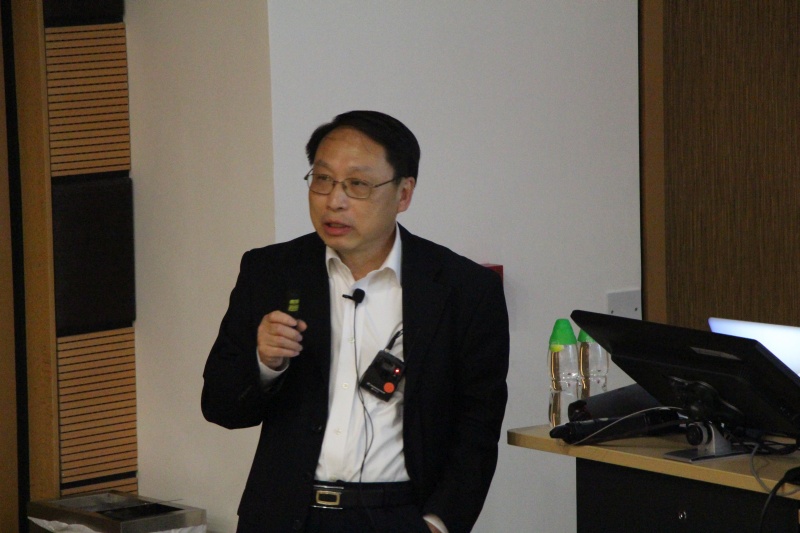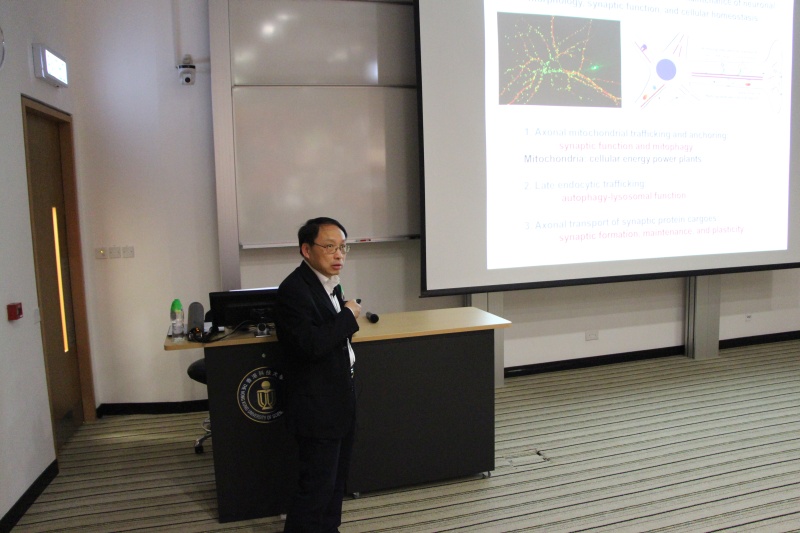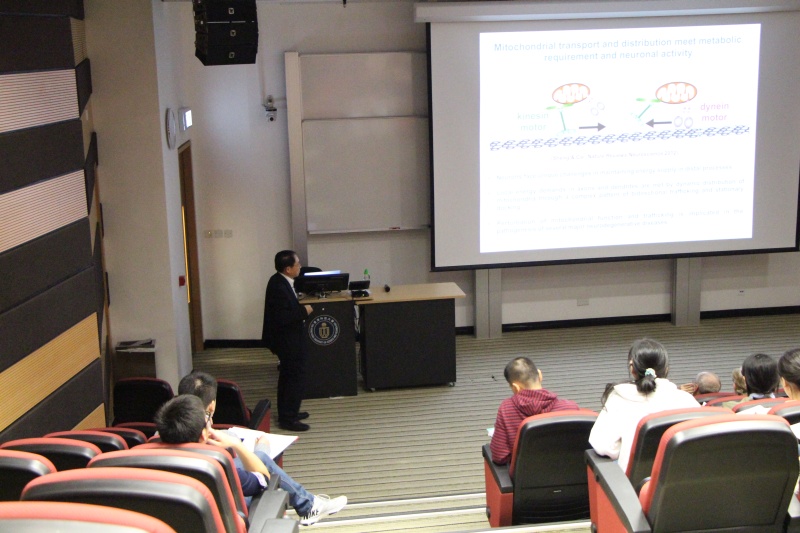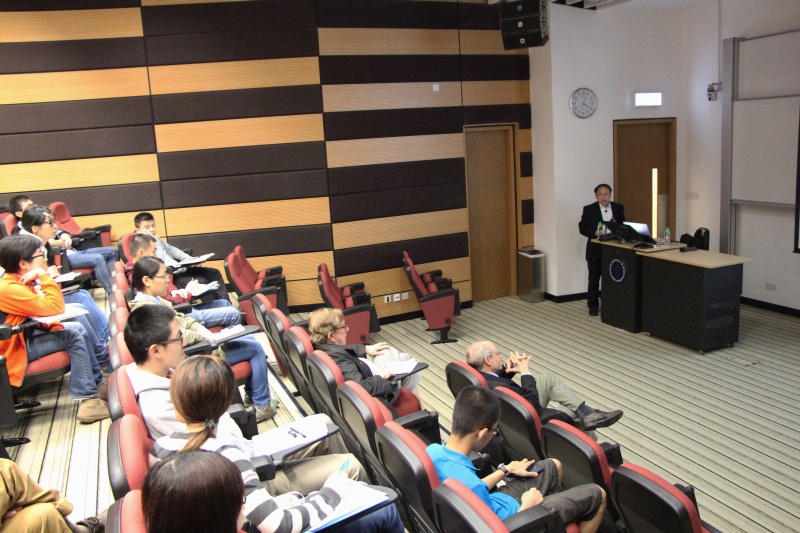Regulation of Mitochondrial Transport: Impact on Synaptic Transmission, Mitophagy, and Neurodegeneration
Abstract
Mitochondria are cellular energy power plants by using oxygen to convert chemicals into the main energy adenosine triphosphate (ATP) that powers cells. This energy is essential for nerve cell survival and communication. Neurons utilize specialized mechanisms driving mitochondria transport to and anchoring them in distal axons and at synaptic terminals, where energy production is in high demand. Research into the mechanisms regulating mitochondrial transport is thus an important emerging frontier. Using a variety of state-of-the-art live neuron imaging approaches in vitro and in vivo, the speaker will explain how the balance between motile and stationary mitochondria is regulated in response to changes in axonal and synaptic physiology. He will also discuss how mitochondrial motility influences synaptic variability, one of the most notable characteristics in synaptic physiology. Mitochondrial dysfunction and impaired transport have been associated with major neurodegenerative disorders. Proper degradation of damaged mitochondria through mitophagy is one of the key mechanisms for mitochondrial quality control. The speaker will discuss how altered mitochondrial motility impacts mitochondria quality control in distal axons in healthy and diseased neurons. The biology behind these processes applies broadly.
About the speaker
Dr. Sheng Zu-Hang received his PhD from the University of Pennsylvania where he worked with Profs Roland Kallen and Robert Barchi in cloning skeletal muscle sodium channel genes and studying their regulatory expression. He did his postdoctoral research in the laboratory of Prof William Catterall at the University of Washington studying structural and functional coupling of presynaptic calcium channels and the synaptic vesicle docking/fusion machinery. He joined the National Institute of Neurological Disorders and Stroke of the US National Institutes of Health as an Investigator in 1996, and is currently Senior Investigator and Chief of Synaptic Functions Section.
Dr. Sheng's laboratory focuses on the mechanisms regulating axonal transport of mitochondria, endocytic organelles, and synaptic cargoes and their impact on axonal homeostasis, synaptic functions and neurodegeneration.
Dr. Sheng is a Member of the American Society for Biochemistry and Molecular Biology, the American Society for Cell Biology and the American Society for Neuroscience.






